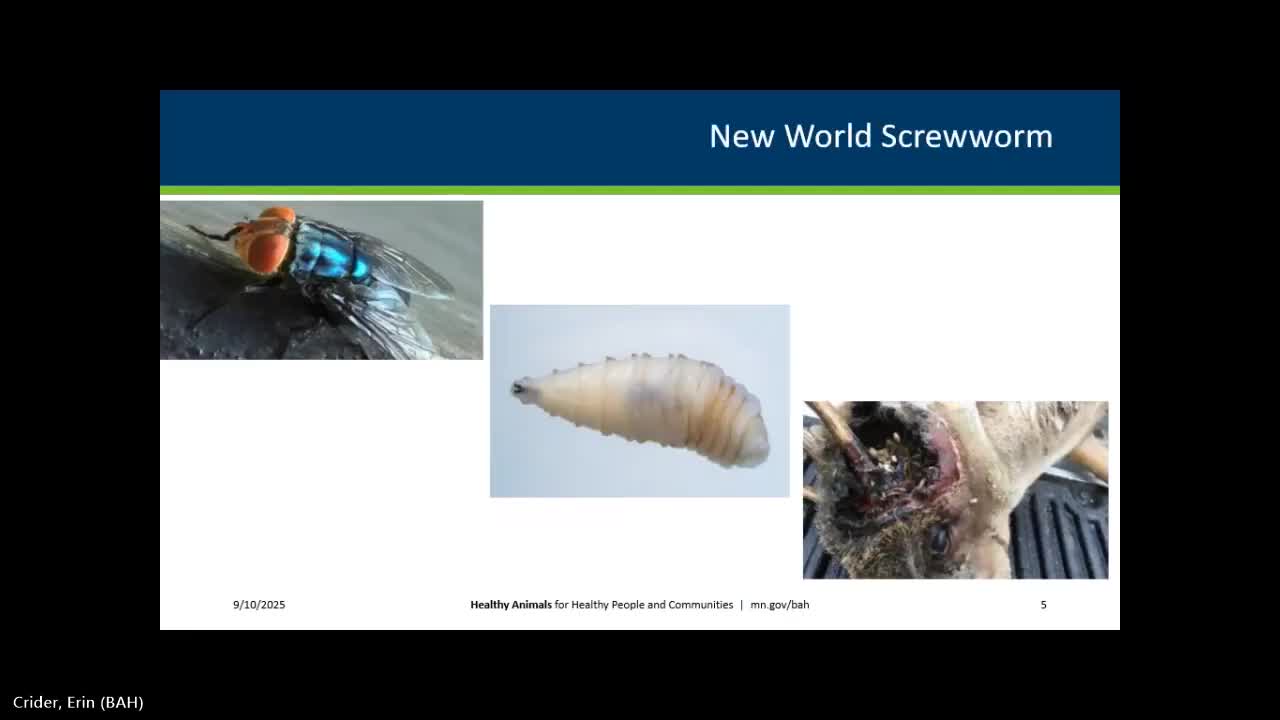Article not found
This article is no longer available. But don't worry—we've gathered other articles that discuss the same topic.
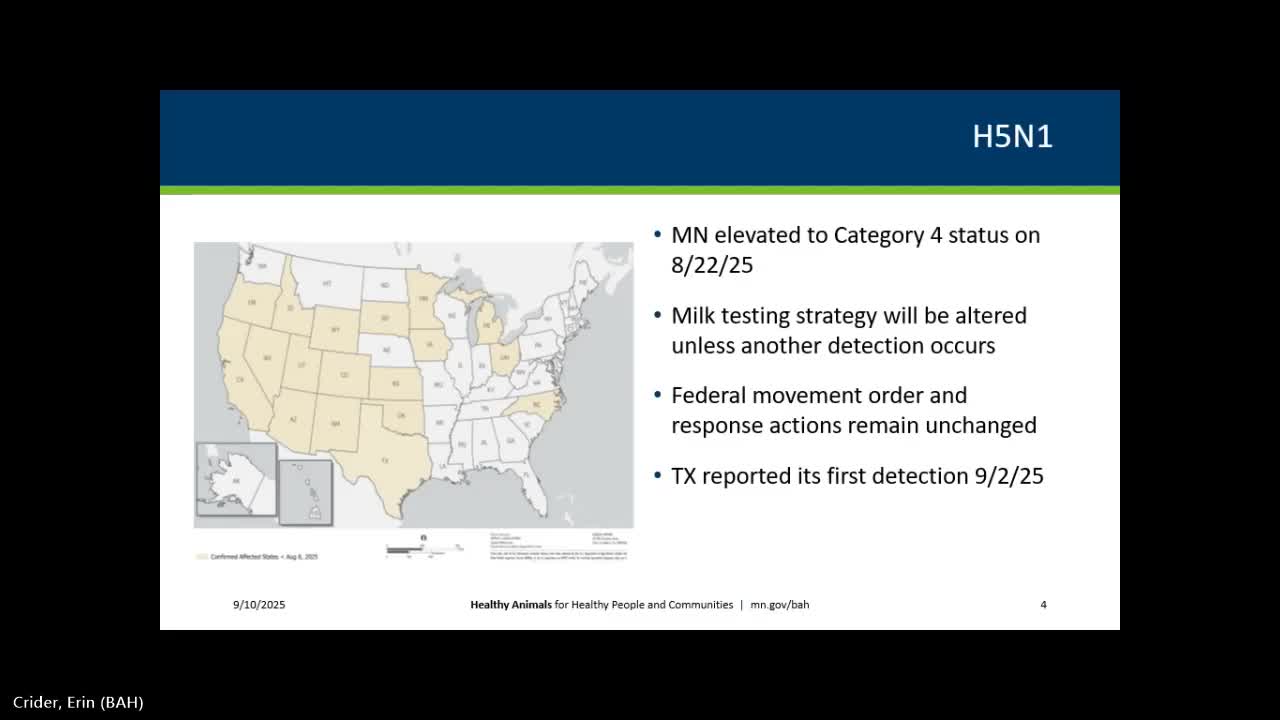
DNR reports increasing chronic wasting disease in southeast Minnesota; expands surveillance and research projects
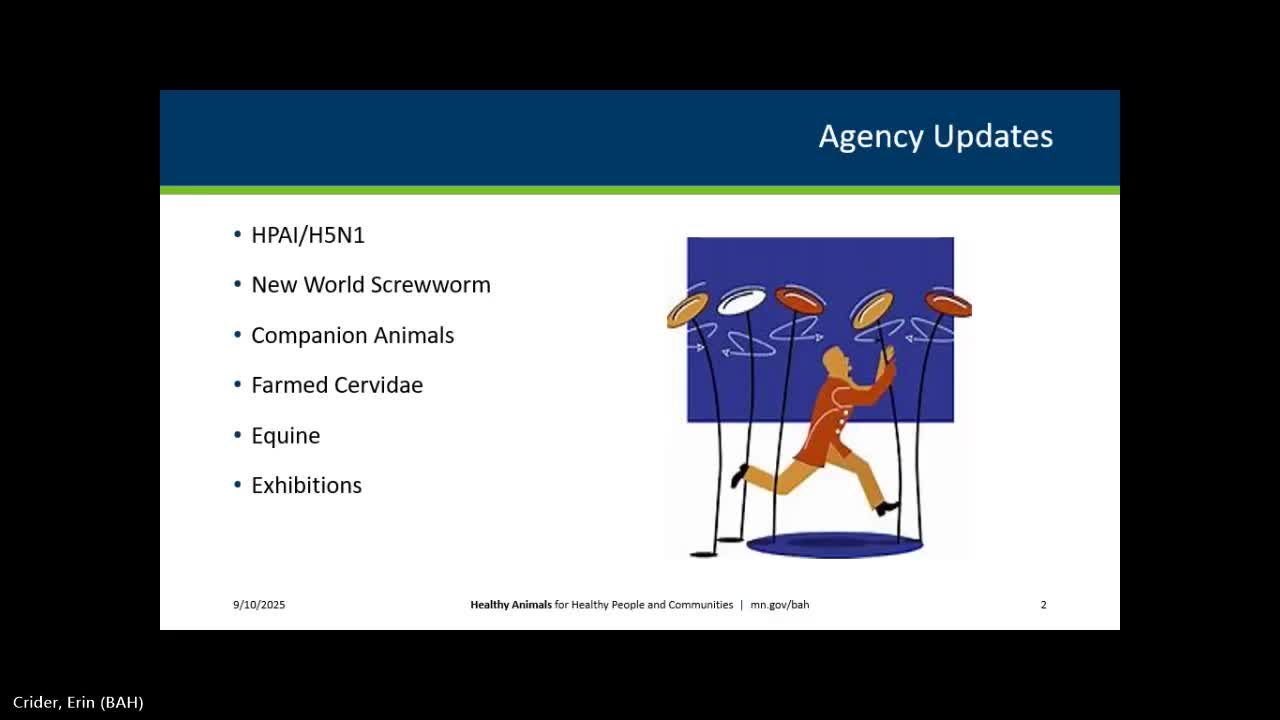
State updates H5N1 surveillance: Minnesota briefly at category 4 for poultry; dairy milk testing continues and researchers report milking-parlor transmission le
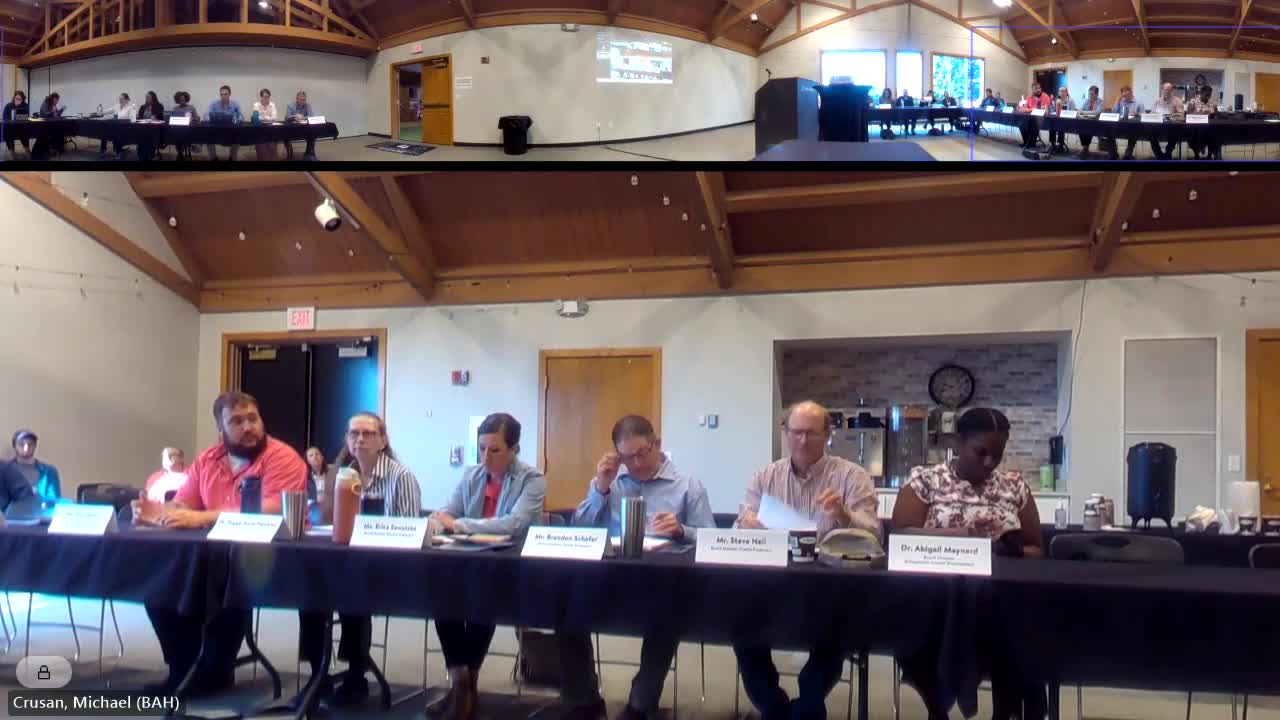
Board of Animal Health approves minutes and agenda; closed session issues two licensing outcomes
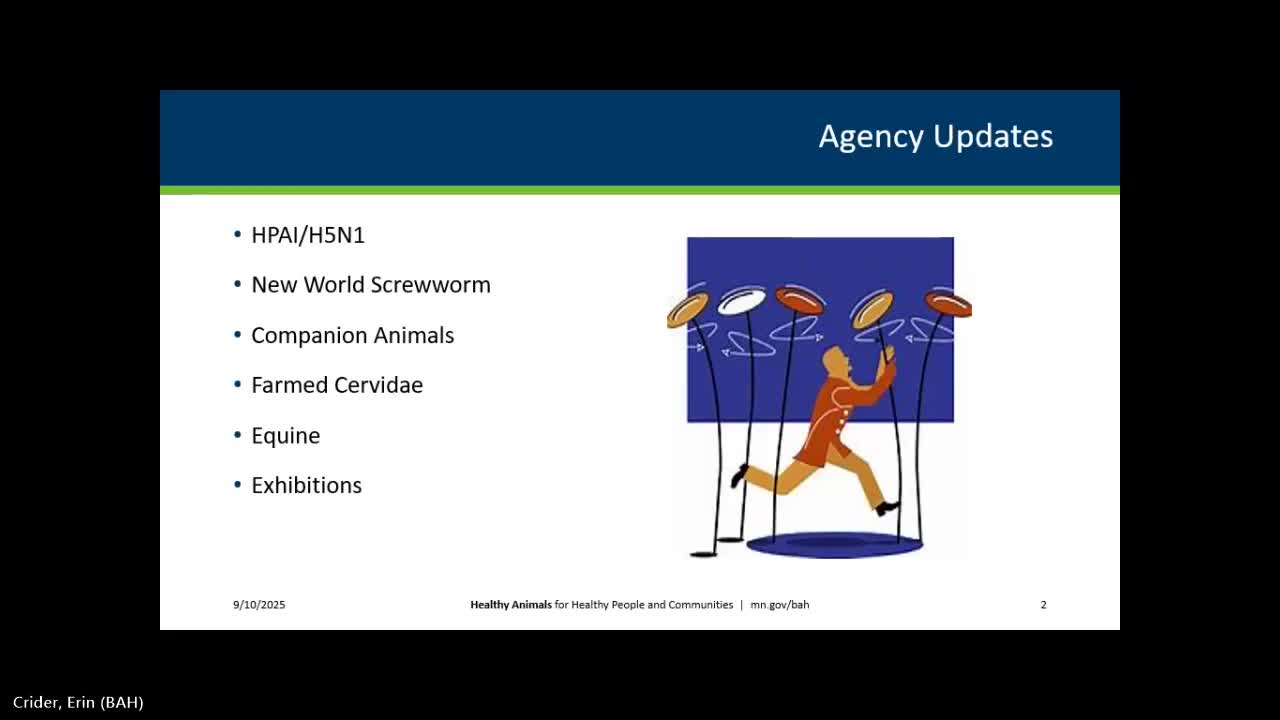
Swine program updates: African swine fever preparedness, US SHIP changes and program standards discussed
